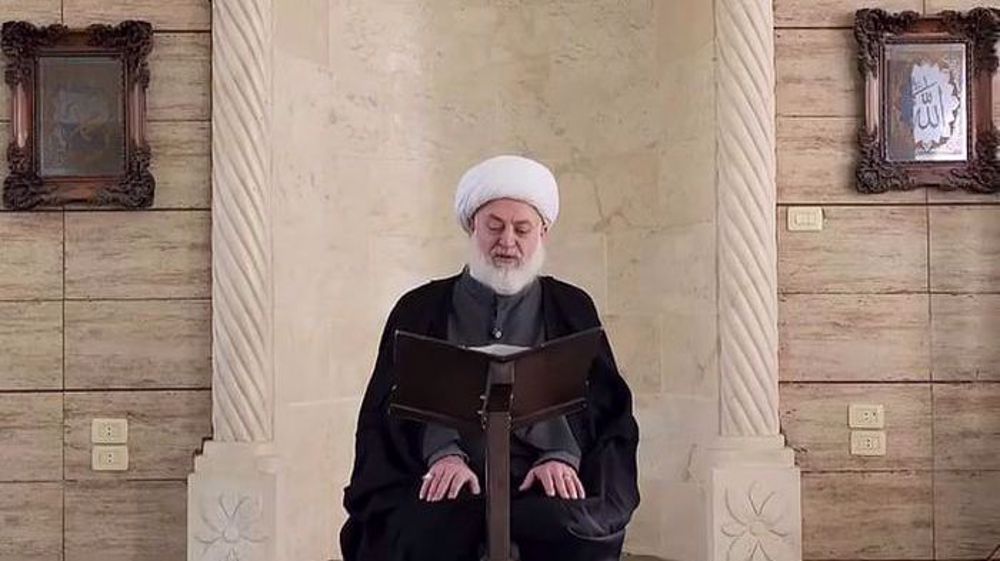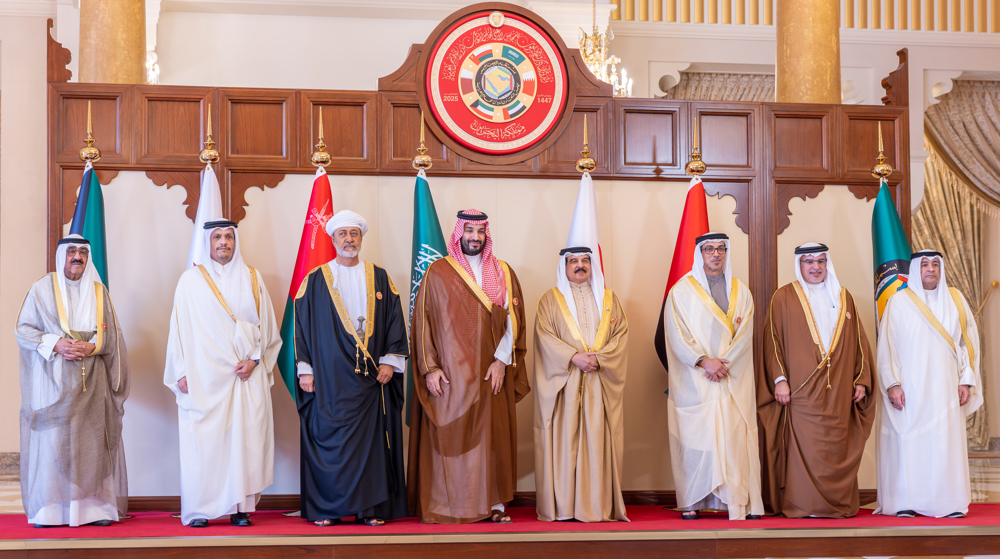UN report on Syria chemical arms unconvincing: Russia
Russia says a UN-led investigation accusing the Syrian government of chemical attacks is “unconvincing” and full of contradictions which fails to present solid evidence to support the claim.
The report has been compiled by the Organization for the Prohibition of Chemical Weapons (OPCW) and the UN’s Joint Investigative Mechanism (JIM). It alleges that Syrian forces carried out three chlorine gas attacks on villages in 2014 and 2015.
The finding of the investigation said in one of the alleged attacks, Syrian military helicopters dropped “barrel bombs” containing chlorine gas against the village of Qmenas in the northwestern province of Idlib in March 2015.
The authors, however, said they “could not confirm the names of the individuals who had command and control of the helicopter squadrons at the time.”
Russian Ambassador to the UN Vitaly Churkin took on the document at a UN Security Council session on Thursday, pointing out a host of irregularities and unsubstantiated claims and calling it generally “unconvincing.”
The hospital, which received the victims of the attack, is yet to confirm that they died of chlorine asphyxiation, he added.
Churkin, meanwhile, reminded that the investigators had also entirely thrown out the Syrian government’s explanations that the spill of chlorine might have been caused by a traffic accident as it was being transported to the village by militants.
The Russian ambassador also called on the Damascus government to launch its own investigation in the claims.
During the Thursday session, Britain and France called for more anti-Syria sanctions as UN resolutions provided for such punitive measure in response to the use of chemical weapons.
However, Russia argued that no sanctions could be slapped on Syria as the UN-led investigation suffers from serious shortcomings.
The Russian diplomat said the findings are “not definitive, have no legally binding force and cannot serve as accusatory conclusions for taking legal decisions.”
The use of chlorine as a weapon is prohibited under the 1997 Chemical Weapons Convention. Syria joined the treaty in 2013.
On October 26, the Syrian Foreign Ministry issued a statement and rejected the investigation, saying Damascus fully honors its commitments under the convention.
Syria “has repeatedly denied all allegations circulated by some Western departments and their tools about the use of chemical poisonous materials by Syrian sides, like chlorine gas, during military acts which take place between the Syrian Arab armed forces and the terrorist groups,” the ministry said.
The OPCW confirmed back in January that Damascus had surrendered its stockpiles of chemical weapons to a joint mission led by the organization and the UN following a chemical attack outside the Syrian capital two years ago.

UN investigators established that sarin gas had been used in Eastern Ghouta in the 2013 attack, which allegedly killed 1,429 people, including at least 426 children.
Last December, Ahmed al-Gaddafi al-Qahsi, a cousin of former Libyan dictator Muammar Gaddafi, said the chemical weapons used in Ghouta were stolen from Libya and later smuggled into Syria via Turkey.
Damascus accuses Turkey, Qatar, and Saudi Arabia of supporting the foreign-backed militants, who have been ravaging the country since 2011.
‘Russia patience wearing thin’
In another development on Thursday, Russian President Vladimir Putin said Moscow is exercising restraint on Syria, but warned that it may lose patience and react to certain actions.
“We ... don’t respond to our partners in such a rude way. But everything has its limits. We may respond,” Putin told an audience in southern Russia.
He made the comments after accusing the US-led coalition pounding Syria of violating a ceasefire agreement by bombing Syrian government forces in September.
A US- and Russia-brokered ceasefire in Syria ended last month. It had ushered in several days of relative calm.
However, later through the ceasefire, violence began to creep back when a US-led airstrike killed more than 80 Syrian soldiers, who had been fighting the Takfiri terrorists in the eastern parts of the country.
Damascus says Washington deliberately targeted the Syrian soldiers.
With the help of dozens of its allies, the US has been leading an aerial bombardment campaign targeting alleged Daesh positions in Syria and Iraq since 2014, without achieving much.
VIDEO | Press TV's news headlines
VIDEO | Eurovision boycott movement over Israel support gains momentum
VIDEO | Cubans rally in Havana to decry US policy on Venezuela
VIDEO | Tunisian million-signature campaign against normalization with Israel
‘Eurovicious no more’: UN Rapporteur welcomes European Eurovision boycott
100 abducted Nigerian students freed, over 160 remain missing
Hamas signals 'comprehensive approach' in second‑phase Gaza truce talks
VIDEO | Trump derangement syndrome















 This makes it easy to access the Press TV website
This makes it easy to access the Press TV website